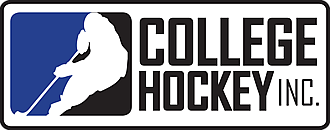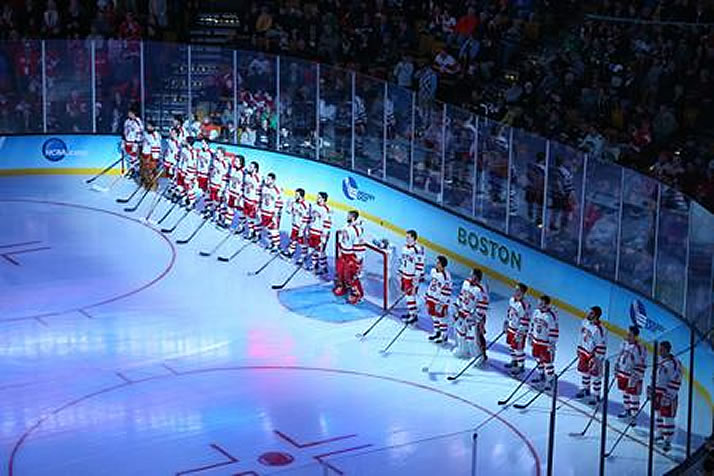


By Andrew Thomas
Andrew Thomas is College Hockey Inc.'s Director of Education and Recruitment. He won a national title and was team captain at Denver and enjoyed a six-year professional career.
It’s one of the most common questions we hear at College Hockey Inc. presentations to prospective players:
Where should I play next season if my goal is to play college hockey?
There is no simple answer, of course, and each individual’s decision depends on a number of factors, including where you live, how old you are, your talent level, your academic status, your family situation and much more.
My Path
Looking back on my path to playing college hockey at the University of Denver, the best advice I can give is to explore all of your options.
Growing up in New Hampshire, I looked closely at prep schools. The challenging academics and opportunity to play two sports at a high level were both appealing to me.
In the end, I wanted to focus on my hockey development and thought the New Hampshire Junior Monarchs, in the EJHL at the time, gave me the best opportunity to do that. I was able to stay at home and play 60-plus games with the Monarchs. I still played lacrosse for my high school, which gave me another outlet away from the rink and helped me develop as an athlete.
From there I was drafted in the USHL (as well as the QMJHL) and moved to Waterloo, Iowa, for my senior year of high school. That progression helped me continue to develop and allowed me to step in and contribute at Denver as a freshman.
All About Development
The best way to frame the question of where to play could be this: where will you develop the most?
Many players and parents put too much stock in where you will get the most exposure, or where you’ll have the best chance to win. That’s understandable – we all want to win. But those questions aren’t nearly as important for teenage hockey players as where they will get the best development experience.
Ask prospective coaches about their priorities, how they structure practices, and their track record in developing players like you. Every coach wants to win, but their answers will help you understand where player development fits in their approach.
One note on development: don’t assume that you always get what you pay for when it comes to development. Paying for specialized training and playing in every available showcase does not ensure development. Your primary avenue for development should be the team you play for, so you should choose that wisely. Getting away from hockey – as I did with lacrosse – can be critical as well.
Overemphasis on Exposure
It’s easy to gravitate toward certain teams or leagues that may hold the promise of exposure to college scouts. In my case, I know that being in the USHL allowed the Denver coaches to see me play.
That said, don’t let potential exposure dictate where you will play – it still needs to be a good fit. If you are playing a limited role in a high-profile league, you may not develop (or get noticed) the way you would in a leadership role elsewhere.
NCAA coaching staffs have extensive networks and resources dedicated to finding recruits, and more than a dozen different leagues sent players to Division I hockey last season alone. Getting noticed depends on how you play, not where you play.
Simply put, if you’re good enough, our coaches will find you. The trick is to develop into that player they want.